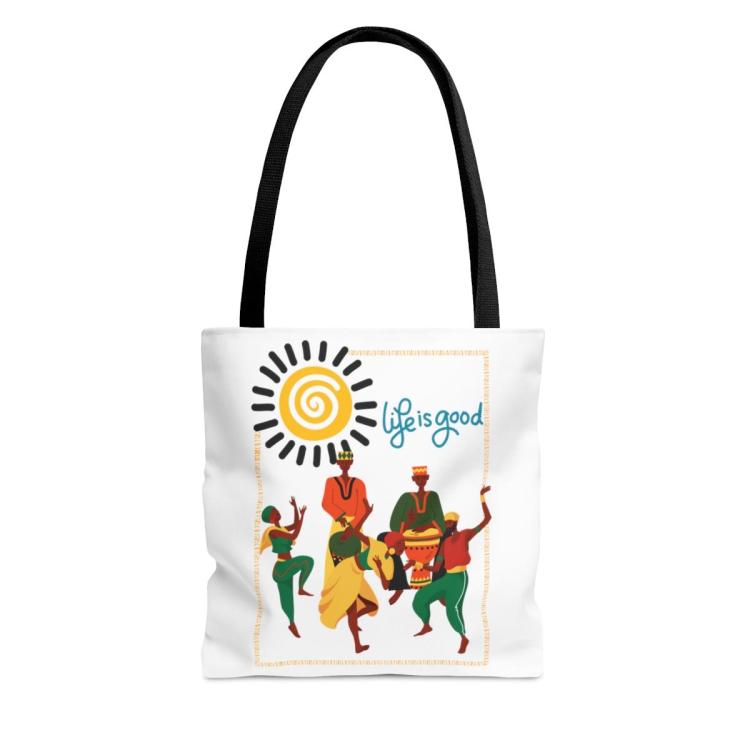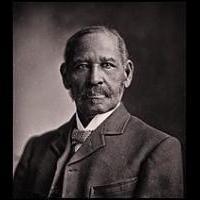Search the Community
Showing results for 'movies that move we'.
-
an online profile named Myles Daye said the following
Pronpt: drawing , thick lines, white background, only color is red from paint dripping, featuring punisher from marvel with a city apart of his jacket.
Starting to feel bad for artist cause these came out amazing.a computer returned the following
My reply
I am an artist, don't feel bad, star trek's holodeck has the same idea as this computer generated interpretation. certain computers today have enough memory plus speed to accept literal statements and compute based on their data storage plus algorithms the literal statements into graphical images. enjoy use it. if anyone wants to draw they still can,no is has halted the ability of anyone to draw straight from their imagination. but, for those who are not artists, now they have the computer to make art they want and if the computer isn't close enough, you can go to artists and have them make details changes. for example, if you want the punisher's cityscape jacket to have a particular skyline with certain buildings certain places you can go to an artists and they can manipulate it. Don't feel bad. enjoy the modern tools, enjoy their financial affordability, if you can remember the computer isn't an artist it isn't imagining anything, and if you want specifics that the computer is having trouble reaching, human artists are out there with the skills to adjust the base image.IN AMENDMENT
someone then replied
please reiterate this to all the AI haters that want to be offended on your behalf. They swear it's an affront to all artists that use "natural" mediums. I'm pretty sure inkers & pencilers felt this way once digital showed up
My reply
in the usa, many workers in many manufacturing or mining towns have been waiting for jobs for fifty or forty years. They are joined by inkers and painters, and in twenty years will probably be joined by truckers/taxi drivers. Your correct, people online spew a wild violent negativity, unwilling to comprehend a person who supports what they oppose, to be patient to their own lives delicacy , to not be afraid. And some people simply like to spread negativity as loud as possible especially online while they are very secure offline . But the negative vibe about computer made art is in a long line of labor group complaints energized by an ever growing populace of people who are being told all is for the collective better while they know they are not too big to fail. I admit I am lucky. I have never been hungry. I have never been told my artistic desires are unworthy or have no value. And I have a loving home where even when things go against me or not conveniently I have people offline who comfort my fears or worries. but most people in the usa don't have that and thus the vibe. Sad. And, the solution sadly is not through online discourse, it is through CEO's elected officials managing industries better. Why didn't the usa government pay for artists in college or working in firms as digital art arose, to have free digital drawing pads plus software from sea to shining sea, every state? why didn't they force firms to pay to make sure their entire labor force including retired employees had tablets plus software. move the labor force into the industry and the labor force will not be as threatened. And if the job pool is gone, which is usual, the government need to pay to redirect people, reach to them, firms don't have to care as much, but a truly caring government should.
-
REVIEW OF NOPE FROM MOVIES THAT MOVE WE
Some points without spoiling the review
8:04 or 23:44 Nike - the role of Perception in the film
25:40 Nicole - description of the films place in genres
33:35 Both- the nonchalance against common sense:) very funny
37:54 Nike- Lovely real life example of how people judge a film strictly, advertise their judgement to influence others, but don't even fully assess a film, by their own admission. But how can one recant in real time
40:16 Nicole- yes, I concur to the relationship to both Peele and the director you mention who in their time in the sun:) had the ability to make films that be thought provoking or artful WHILE also commercial. I don't think it is unimportant to say that Nope covered its cost of production.
49:44 Both - Keith David is a very fortunate thespian. Not merely being a thespian having less opportunty, cause he is black and media in the USA is owned by whites, who do favor giving opportunity to whites. But, Keith David has been able to be part of many thoughtful films in the film itself or its role in genre setting in various genres: The THing;The Live;Pitch Black;Nope<science fiction>[Keith David has successfully been a black character in a science fiction film that has lived at the end more than once, died before the 15 minute mark and died just before the end:) ] / Platoon<war film>/ Bird<documentary> [where he played a criminalized version of buster smith] /Roadhouse<action>People don't realize how some films hollywood has been heavily inspired by and never been able to repeat /The Quick and the Dead<western> [a female led western back when it wasn't so easy to see being financed]/PRincess Mononoke <anime>[the studio ghibli collection itself is something else... his voice is everywhere, ever since, and shout to tv show gargoyles]/Crash <social commentary vignettes>[hollywood has tried to find the next crash since crash]/The Inheritance<My personal favorite film with him in it, the story is a rare thing in its message>
Prior Movies That Move We entry
https://aalbc.com/tc/profile/6477-richardmurray/?status=1989&type=status
MOVIES THAT MOVE WE entries
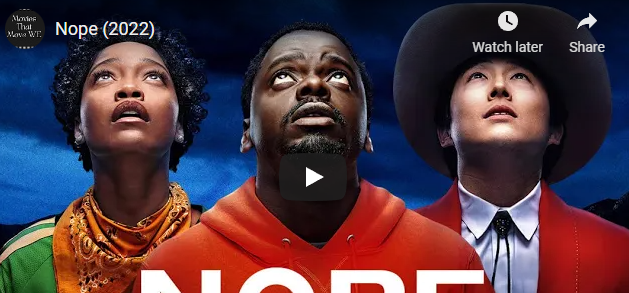
-
Miss Juneteenth - film review by Movies That Move We
facebook group link
https://www.facebook.com/groups/162792258578547/permalink/437616257762811/Prior Moviess That Move We Post
https://aalbc.com/tc/profile/6477-richardmurray/?status=1983&type=statusList of Movies That Move We Post
https://aalbc.com/tc/search/?q="movies that move we"&quick=1&type=core_statuses_status
juneteenth art
Title: Black YEar Round
Artist: RoseberriiDotart
https://www.deviantart.com/roseberriidotart/art/Black-Year-Round-888032233
ARTICLE
https://www.deviantart.com/team/journal/Celebrate-Juneteenth-2022-918659475
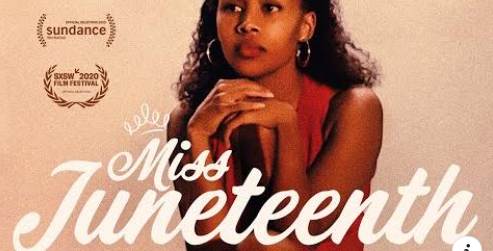
-

THE HISTORIC MICHIGAN STREET BAPTIST CHURCH

Yesterday, along with many other people across the city, I partook in Doors Open Buffalo where many buildings and businesses across the city--as the name suggests--opened their doors to the public. Planning on stopping at and photographing 4 or 5 churches I ended up at just this one; the Michigan Street Baptist Church.
This church is important and historic for many reasons. One is its age. The congregation was first formed in 1836 and the building itself completed in 1849. But it is the congregation itself that is important as well..this was the first black church of any denomination in the city of Buffalo. This, and also the fact that they were instrumental in the success of the Underground Railroad. Not only did they hide freed slaves, they helped get them safely across the border to Canada.

After visiting their humble sanctuary I was about to leave and move on the the next church when I heard someone say, "Don't forget to visit the basement, Bishop Henderson is giving tours."

Upon entering the small basement I saw an elderly man who looked more like a Rabbi talking with a handful of people. This was Bishop Henderson. Affiliated with the church for more than 50 years, he was a wealth of knowledge and more than eager to talk about what he knew. When I asked if he still preached he turned to me and said simply, "Why yes, I still do." He also seemed a bit surprised and shy when I asked if I could take his photo but he obliged. His first name is William and he was originally refereed to as Brother Billy because he began preaching on Buffalo's East Side street corners at the ripe age of 14 [source].
Among the many things he told us ("Should I go on?" he would ask, "because I can talk about this all day") two of the most moving things to me were the poster directly below and also the small passageway where they hid escaped slaves.
The poster is a replica of an actual one that was common of the time. There were a few deeply disturbing things the Bishop pointed out. Out of the 18 women for sale, 8 of them came with "future insurance," meaning they could still bear children. So in essence, pay for the price of one human and you have the potential of receiving more. Even more chilling is on of the descriptions for the 6 girls, "bud'n out." This meant two things. Because the girls were in puberty ("bud'n out") they were available for the slave owners personal pleasure and also had the possibility of having children; more "future insurance." He also pointed to the bottom of the poster where these humans for sale were lumped into the same category as horses, cows, hogs, bulls, goats, and even wagons.
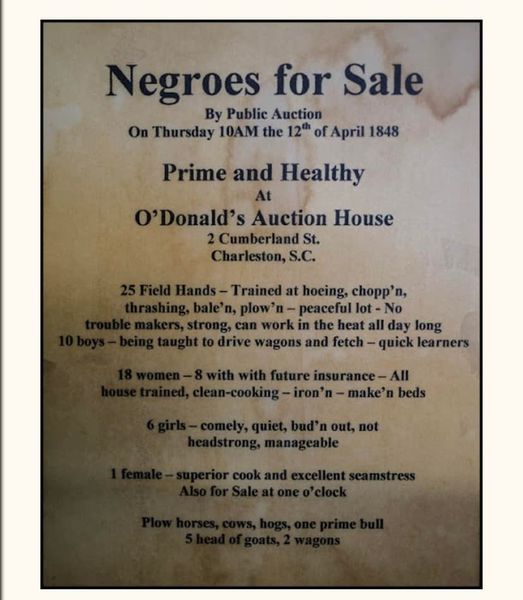

The cramped passage in the building where they hid escaped slaves--between the foundation and a wall--was at one time covered over, the Bishop told us, but at some point years ago they uncovered it as not to forget. How could anyone possibly forget this, I thought to myself.
After spending some time listening to Bishop Henderson I left and felt sad and weak. I also felt inspired. While slavery was, as Bishop Henderson put it, "A very dark period in our country's history," and without doubt racism is alive and well in America, there is also a new awareness which to me is a new hope. Nearly all of the visitors in the church yesterday were white, which I found interesting.
As I left the church and turned and looked back the front door was open; it looked so welcoming. I felt a slight chill in the air, and I thanked our creator for the work this church has done.
https://www.urbansimplicity.com/2019/06/the-historic-micigan-street-baptist.html
-
-
 1
1
-
- Report
-
-
SISTER ACT review on Movies that move we
3:29 I do have a question of the legitimacy of the ignorant spouse/girlfriend/boyfriend character in films? Can a mob man that brazzen really keep his activities secret? hmmm 4:35 haha bette midler was cast first, of course throw away role 5:10 Dolores , has whoopie ever explained the source of this 5:50 didn't know about Carrie Fisher 6:50 whoopie sang all her parts, wow! didn't know about the other 7:47 that is a great story, I will love to have seen them, dancing on the tables when they won:) *:23 yes, your right I will:) even though you told me before:) haha 8:25 25 years that show been on , wow! 9:20 that is a great question, with audio copying, I guess it fell like the rest of audio recording industry 10:47 didn't know they came out back to back , love lauryn hill 11:23 sister act 2 may challenge parents with teenage kids:) 12:02 it was relatives who introduced me to both films.
PRIOR Movies That Move We Post < videos viewable>
https://aalbc.com/tc/search/?&q=%22movies%20that%20move%20we%22&type=core_statuses_status&quick=1&search_and_or=or&sortby=relevancy
link
https://www.youtube.com/watch?v=ptpTJchGnp4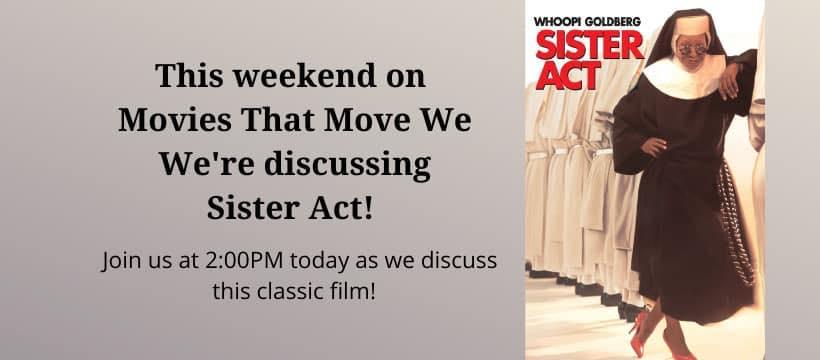
-
“Unbury the Future”: Martha Wells’ Full Speech from the 2017 World Fantasy Awards
Martha Wells
Tue Nov 7, 2017 10:00am
The convention defines “secret history” as tales which uncover an alternative history of our world with the aid of fantasy literary devices. Like alternate histories or secret tales of the occult.A secret history might also mean a lost history, something written in a language that died with the last native speaker. It might mean something inaccessible, written in a medium too fragile to last. Like the science fiction and fantasy stories published in U.S. newspapers in the late 1800s. We know a few of those authors, like Aurelia Hadley Mohl [ https://tshaonline.org/handbook/online/articles/fmoae ] and Mollie Moore Davis [ https://en.wikipedia.org/wiki/Mollie_Evelyn_Moore_Davis ] , but how many others were there? Those stories were proof that everybody has always been here, but the paper they were printed on has turned to dust.
We might know that C.L. Moore [ https://en.wikipedia.org/wiki/C._L._Moore ] wrote for Weird Tales, but I grew up thinking she was the only one, that a woman fantasy writer from that time period was like a unicorn, there could only be one, and that she was writing for an entirely male audience. But there were plenty of other women, around a hundred in Weird Tales alone, and many of them, like Allison V. Harding [ https://tellersofweirdtales.blogspot.com/2011/05/who-was-allison-v-harding.html ] and Mary Elizabeth Counselman [ http://www.innsmouthfreepress.com/blog/summer-of-unknown-writers-mary-elizabeth-counselman/ ] , didn’t bother to conceal their identity with initials.
Weird Tales had women poets, a woman editor named Dorothy McIlwraith, women readers who had their letters printed in the magazine. There were women writing for other pulps, for the earlier Dime Novels, lots of them. Including African American Pauline Hopkins [ https://en.wikipedia.org/wiki/Pauline_Hopkins ] , whose fantasy adventure novel appeared in a magazine in 1903.These women were there, they existed. Everybody knew that, up until somehow they didn’t. We know there were LGBT and non-binary pulp writers, too, but their identities are hidden by time and the protective anonymity of pseudonyms.
Secrets are about suppression, and history is often suppressed by violence, obscured by cultural appropriation, or deliberately destroyed or altered by colonization, in a lingering kind of cultural gaslighting. Wikipedia defines “secret history” as a revisionist interpretation of either fictional or real history which is claimed to have been deliberately suppressed, forgotten, or ignored by established scholars.
That’s what I think of when I hear the words “secret histories.” Histories kept intentionally secret and histories that were quietly allowed to fade away.
The women writers, directors, and producers of early Hollywood were deliberately erased from movie history. Fifty percent of movies between 1911 and 1928 were written by women. In the 1940s there were a last few survivors at MGM, but their scripts were uncredited and they were strongly encouraged to conceal what they were working on, and not to correct the assumption that they were secretaries.
With the internet, it shouldn’t be possible for that to happen again. But we hear an echo of it every time someone on Reddit says “women just don’t write epic fantasy.”
You do the work, and you try to forget that there are people wishing you out of existence. But there are a lot of means of suppression that are more effective than wishing.
Like in 1974 when Andre Norton discovered the copyeditor on her children’s novel Lavender Green Magic had changed the three black main characters to white.
Or like in 1947, when African American writer and editor Orrin C. Evans was unable to publish more issues of All-Negro Comics [ https://en.wikipedia.org/wiki/All-Negro_Comics ] because there was mysteriously no newsprint available for him to purchase.
Or like all the comics suppressed by the Comics Code Authority in 1954, which acted to effectively purge comics of people of color and of angry violent women, whether they were heroes or villains, or of any perceived challenge to the establishment. Like the publisher Entertaining Comics, which was targeted and eventually driven out of business for refusing to change a story to make a black astronaut white.
There’s an echo of that suppression when DC bans a storyline [ http://www.hollywoodreporter.com/heat-vision/batwoman-authors-exit-claim-dc-621274 ] where Batwoman proposes marriage to her girlfriend. And again when Marvel publishes a storyline that makes us think Captain America is a Nazi. When we’re supposed to forget that his co-creator Jack Kirby was Jewish, that he was an Army scout in World War II, that he discovered a concentration camp, that he was personally threatened by three Nazis at the New York Marvel office for creating a character to punch Hitler. (Maybe the Nazis would like to forget that when Kirby rushed downstairs to confront them, they ran away.)
There’s been an active level of suppression in movies since movies were invented. At least a white woman writer and director like Frances Marion [ https://en.wikipedia.org/wiki/Frances_Marion ] could win two Academy Awards before she was banished from history, but that wasn’t the case for her contemporary Oscar Micheaux [ https://en.wikipedia.org/wiki/Oscar_Micheaux ] . An African American, Micheaux worked as a railway porter before he wrote, directed, and produced at least 40 films in the black movie industry that was entirely separate from white Hollywood.
That kind of suppression is still alive and well, and we see it when the movie about the Stonewall riots shows the resistance against police attacks through the viewpoint of young white guys and ignores Marsha P. Johnson and Sylvia Rivera [ https://sites.psu.edu/womeninhistory/2016/10/23/the-unsung-heroines-of-stonewall-marsha-p-johnson-and-sylvia-rivera/ ] . Or when Ghost in the Shell features a white actress [ https://www.tor.com/2016/04/20/why-are-we-still-white-washing-characters/ ] instead of Japanese.
We’ve forgotten Sessue Hayakawa [ https://en.wikipedia.org/wiki/Sessue_Hayakawa ] , a Japanese actor who was one of the biggest stars in the silent film era of Hollywood, who was well known as a broodingly handsome heartthrob.
Sometimes history isn’t suppressed, sometimes it just drifts away. The people who lived it never expected it to be forgotten, never expected their reality to dissolve under the weight of ignorance and disbelief.
Hidden Figures by Margot Lee Shetterly unburied the history of the African American women of early NASA, of Katharine Johnson, Mary Jackson, Dorothy Vaughn and the hundreds like them. They were just forgotten over the years, as the brief time when women’s work meant calculating launch and landing trajectories and programming computers passed out of memory. Like the Mercury 13 [ https://en.wikipedia.org/wiki/Mercury_13 ] , the “Fellow Lady Astronaut Trainees” in the 1960s, all pilots, all subjected to the same tests as the men. They retired, they went away, everyone forgot them.
Sometimes when they’re remembered, their contributions are minimized, like when a photo caption calls bacteriologist Dr. Ruby Hirose a “Japanese girl scientist” or labels Bertha Pallan, who was one of the first Native American women archeologists, as an “expedition secretary.” Like the photo post on Tumblr that over and over again, identified Marie Curie as a “female laboratory assistant.” Anybody can be disappeared.
We think we remember them, but then we’re told over and over again, all over the internet, that women don’t like math, can’t do science. That’s the internet that’s supposed to preserve our history, telling us we don’t exist.
Mary Jane Seacole was a Jamaican nurse who helped the wounded on the battlefields of the Crimean War, just like Florence Nightingale. Sister Rosetta Tharpe was the mother of rock and roll. Sophia Duleep Singh was a prominent suffragette in the UK. They’re all in Wikipedia, but you can’t look them up unless you remember their names.
The women who worked in the Gibson Guitar factory during WWII were deliberately erased, their existence strenuously denied, despite the evidence of a forgotten group photo that the company still would like to claim never existed.
Jackie Mitchell, seventeen years old, struck out Babe Ruth and Lou Gehrig in an exhibition game in 1931. Her contract was almost immediately voided by the baseball commissioner. Baseball was surely too strenuous for her.
In 1994, Gregory Corso was asked, “Where are the women of the Beat Generation?” He said, “There were women, they were there, I knew them, their families put them in institutions, they were given electric shock.” Some of them survived, like Diane di Prima, and Hettie Jones.
Book burning draws too much attention. In science fiction and fantasy, in comics, in media fandom, everybody was always here, but we have been disappeared over and over again. We stumble on ourselves in old books and magazines and fanzines, fading print, grainy black and white photos, 16 millimeter film, archives of abandoned GeoCities web sites. We remember again that we were here, they were here, I saw them, I knew them.
We have to unearth that buried history. Like Rejected Princesses [ http://www.rejectedprincesses.com/ ] , by Jason Porath, which chronicles the women of history too awesome, offbeat, or awful to be animated. Or Nisi Shawl’s series the Expanded Course in the History of Black Science Fiction [ https://www.tor.com/tag/history-of-black-science-fiction/ ] . Or Malinda Lo’s LGBTQ YA By the Numbers [ https://www.malindalo.com/blog/2017/10/12/lgbtq-ya-by-the-numbers-2015-16 ] posts. Or Medieval POC [ https://twitter.com/medievalpoc?ref_src=twsrc%5Egoogle%7Ctwcamp%5Eserp%7Ctwgr%5Eauthor ] , sharing information about people of color in European art history. Like Eric Leif Davin in his book Partners in Wonder: Women and the Birth of Science Fiction. Like Cari Beauchamps’ book Without Lying Down, about the women writers, directors, and producers of early Hollywood. Like Catherine Lundoff’s series on the history of LGBT Science Fiction and Fantasy. Like Saladin Ahmed’s articles on the early history of comics or Jaime Lee Moyer’s article on the erasure of early women scientists[ http://www.jaimeleemoyer.com/we-all-know-what-they-did-to-witches/ ] . Like all the librarians and researchers and writers and archivists and fans who work to unbury our past so we have a chance to find our future.
And we have to continue to move forward toward that future in the fantasy genre, like the nominees on this year’s World Fantasy Award ballot, like all the other fantasy novels and short fiction last year that pushed the envelope a little further, or pushed it as far as it would go.
We have to break the barriers again and again, as many times as it takes, until the barriers are no more, and we can see the future our secret history promised us.
Author’s note: I’d like to thank Kate Elliott for reading an early draft of this, and for her help, inspiration, and encouragement.
Editor’s note: Martha Wells’ toastmaster speech was delivered at the World Fantasy Convention on November 5, 2017 and is reproduced here with the author’s permission; a few minor edits have been made and links have been added to the original text for additional context/clarity.
Martha Wells is a science fiction and fantasy writer, whose first novel was published in 1993. Her most recent series are The Books of the Raksura, for NightShade Books, and The Murderbot Diaries for Tor.com. Besides many fantasy novels, she has also written short stories, media tie-ins for Star Wars and Stargate Atlantis, YA fantasies, and non-fiction.
MY THOUGHT
But I think the greater question is not about presence, but action. "We" have always been here is the truth but what do "We" do when lifetimes of merit don't force "Them" to honor or treat "We" at the least equally?




